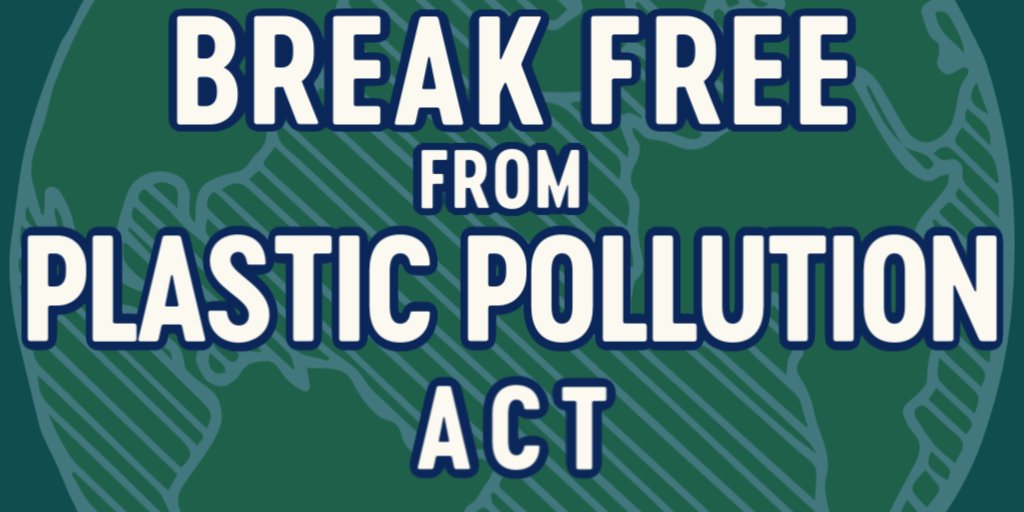For Immediate Release: February 11, 2020
Washington DC -- Today, Senator Tom Udall (D-NM) and Representative Alan Lowenthal (D-CA) introduced the Break Free from Plastic Pollution Act – the first comprehensive bill in Congress to address the plastic pollution crisis. Drawing on stakeholder input from over 200 individuals, environmental groups, businesses, trade associations, aquariums, academics, grassroots organizations, and state and local governments, the Break Free From Plastic Pollution Act reduces unnecessary plastic and reforms our broken waste management system.
Globally, the plastics industry produces over 335 million tons of plastic each year – and this volume is continuing to increase. By 2050, global plastic production is projected to triple and will account for 20 percent of all oil consumption. But nearly two-thirds of plastic produced becomes waste. The materials in Americans’ blue bins are often landfilled, incinerated, or shipped overseas to countries that are unable to manage the burden of additional trash. What were once pristine agricultural communities in southeast Asia are now toxic dumpsites due to imported waste from wealthier nations like the United States. Plastic waste finds its way into our water, soil, and air where it breaks down into microplastics that contaminate food and drinking water, consequently posing a risk to human health.
Break Free From Plastic members are supportive of the bill (learn what they are saying) as it addresses the root cause of the plastic pollution crisis. Communities who live on the fenceline of the neighboring petrochemical facilities, in particular, face the brunt of toxic air emissions resulting in negative health impacts. In the United States, state and local governments are implementing policies to reduce unnecessary plastic products and shift the huge financial responsibility to producers for managing our waste. The Break Free From Plastic movement is calling for federal leadership to build on this momentum.
###
ABOUT BREAK FREE FROM PLASTIC
Break Free From Plastic is a global movement envisioning a future free from plastic pollution. Since its launch in September 2016, nearly 1,800 organizations from across the world have joined the movement to demand massive reductions in single-use plastics and to push for lasting solutions to the plastic pollution crisis. These organizations share the common values of environmental protection and social justice, which guide their work at the community level and represent a global, unified vision.
Attachments:
- Full text of the bill can be found on Senator Tom Udall's website and Representative Alan Lowenthal's website
- What Supporters are Saying
- Myths, Facts, and FAQs
- Bill Summary
Contacts:
Shilpi Chhotray, Break Free From Plastic, +1 703 400 9986 or shilpi@breakfreefromplastic.
Ned Adriance, Senator Udall’s Office, Ned_adriance@tomudall.senate.
Keith Higginbotham, Congressman Lowenthal’s Office, keith.higginbothm@mail.house.




